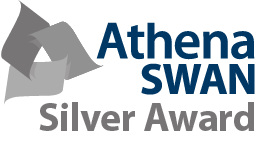Flexible Working
The University’s Flexible Working Policy, which can be found here, sets out the statutory procedure to be followed when staff ask to work flexibly to achieve a better work/life balance. The range of flexible working practices that may be requested and, depending on the circumstances, may be appropriate include:
- part-time or term-time working
- job share
- compressed or annual hours
- staggered hours or flexitime.
All employees have a statutory right to request flexible working from their first day of employment. Staff wishing to request a change to their existing working pattern should read this policy and informally discuss their proposed change with their Head of Institution or line manager as appropriate before proceeding with their statutory request.
Hybrid Working
The Hybrid Working Policy, which can be found here, aims to enable as many staff as possible to work in a hybrid way if they so wish, whilst recognising that some roles will include tasks that can only be performed on University premises. It highlights that consideration should be given to the possibility of occasional remote working, even if only a small number of tasks in an individual’s role can be performed in this way.
The policy should be read in conjunction with its supporting guidance. The Hybrid Working Policy Guidance aims to ensure a consistent and fair approach to decisions around hybrid working and to support institutions, line managers and staff in identifying and agreeing hybrid working arrangements

